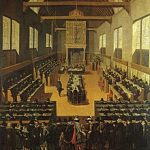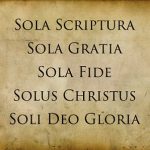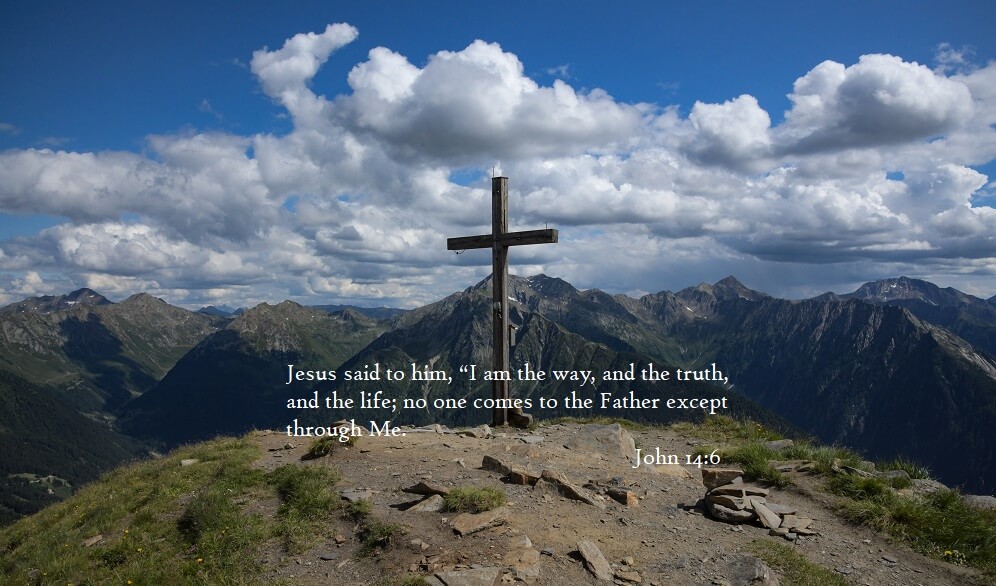The Reformation in a Nutshell
Thousands of pages in countless books have detailed, recounted and analyzed the Reformation. So to summarize it in a page is daunting indeed…

Until the 1500s, the only Christian church was the Catholic church, now called the Roman Catholic Church. By that time the Catholic church had fallen away from the Bible and into all too human excess in the view of many within and without. One such was a scholarly monk named Martin Luther. In answer to the unbiblical excesses of the church, on October 29, 1517 he proposed 95 reforms to return it to the truth of scripture. The intent was reform, not destruction. However, his proposals were a lightening rod that split the church, resulting in two groups: those that wished to return to biblical truth, and those who held with the old church. It was a violent upheaval lasting many years and included the martyring many godly people, many from among those who followed Luther’s ideas.
Thus was born the Protestant church (as opposed to the Catholic Church). The foundational principle of this was that God is sovereign in all things and particularly in the saving of Christians. Salvation was a monergistic act; that is, an act of God alone, separate from any attribute or work of those who were saved. This principle was the message of the Bible, its exposition traceable back to St. Augustine and other early church fathers.The ideas of the Bible, the church fathers and Luther were subsequently quantified and documented by John Calvin. They later became known as Calvinism but that is a misnomer. He simply was best at articulating them.
“I have my own private opinion that there is no such thing as preaching Christ and Him crucified unless we preach what nowadays is called Calvinism. It is a nickname to call it Calvinism; Calvinism is the Gospel and nothing else. I do not believe we can preach the Gospel if we do not preach justification by faith, without works; nor unless we preach the sovereignty of God in His dispensation of grace; nor unless we exalt the electing, unchangeable, eternal, immutable, conquering love of Jehovah; nor can I comprehend a Gospel which lets saints fall away after they are called and suffers the children of God to be burned in the fires of damnation after having once believed in Jesus. Such a Gospel I abhor.” Charles Haddon Spurgeon
At its foundation, Calvinism is the truth that God is sovereign in all things, including man’s salvation.
By the 1640s, a monk named Arminius countered that in fact salvation was a work of man, based on his attributes, with God granting it on that basis. In effect, man was the final arbiter of his own salvation. This appealed to the sensibilities of many, and he attracted a notable following, causing great conflict within the Protestant church.
At its core, Arminius proposed that man rather the God was ultimately sovereign in salvation.
 A Synod (council of church leaders from throughout the Christian world) spanning more that a year was held at Dordt in 1641-42, to consider the matter. In the end, Arminius’ doctrine was deemed heresy and a document rebuking each of his ideas was published – the Canons of Dordt. This answer to Arminius was later condensed and became known as the Five Points of Calvinism, under the acronym TULIP. These propositions are known today as the Doctrines of Grace. In a nutshell, man is saved by God, not in any was by himself.
A Synod (council of church leaders from throughout the Christian world) spanning more that a year was held at Dordt in 1641-42, to consider the matter. In the end, Arminius’ doctrine was deemed heresy and a document rebuking each of his ideas was published – the Canons of Dordt. This answer to Arminius was later condensed and became known as the Five Points of Calvinism, under the acronym TULIP. These propositions are known today as the Doctrines of Grace. In a nutshell, man is saved by God, not in any was by himself.
Part of these doctrines, stating God”s absolute sovereignty over any person’s salvation, is articulated in Reformed theology as five truths. Salvation is by: Faith alone, in Jesus Christ alone, through God’s Grace alone, as witnessed in Scripture alone, all to the Glory of God alone. In the final analysis, all of creation is about God’s glory. These five points are referred to the the Five Solas in Reformed literature.
The Reformed church of today gathers based upon these truths. They were the basis for the Baptist Confession of 1689. And they are the foundation for Reformed Baptists today. All to God’s Glory alone.
